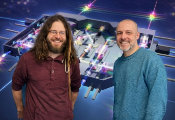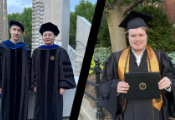Quantum Utility for Breakthroughs in Industries and Science
It is time to look at quantum computers as tools for scientific discovery. Quantum computers promise capabilities to address specific categories of problems that we already know classical computers cannot solve efficiently. Connecting experts in quantum computing with industry leaders will take us from quantum utility, today, to quantum advantage.
In the history of the development of classical computers, as they got more powerful, we found amazing things to do with them. That’s where quantum is today: The systems are getting to a point where they are better at running quantum circuits than classical computers are. For example, last year we at IBM used a device with more than 100 qubits to demonstrate that quantum computers can tackle a scale of problems that go beyond the “brute-force” calculations done by classical computers. Now we need to identify those problems for which quantum circuits are the most efficient solution. We know quantum computers won’t replace classical computers; what’s fascinating are the areas where they may solve problems better than classical computers.
Some early signs point to utility in areas like life sciences, physics, materials, and optimization problems. For example, we’re currently working with an aerospace company using quantum computers to simulate corrosion problems and identify new and better ways of preventing them. We’re also helping a financial services company improve its risk management and customer experience processes.
While quantum hardware companies can provide high-performance machines, it will be the users across industries, research, and academia who ultimately find quantum advantages. We expect more companies and industries to start identifying areas where using quantum computing makes sense. Interest is growing thanks to a change in how people are talking about quantum computing. When quantum machines first hit the market, the public thought that you needed a lot of people with PhDs to manage them. That narrative has changed quite a bit as the tools and technology have evolved. We’re now seeing discussions migrate away from how quantum computers work toward deeper dives into what they can do for science and businesses. As we continue into the era of utility, we must keep pushing the discussion from what quantum computers are to what they can do in order to extract value.
Still, we can’t be too prescriptive about quantum’s future applications. It’s understandable that people want to know how quantum will be used when it’s fully mature—but thinking about the development of classical computing, nobody in the 1960s envisioned that we’d all have smartphones 50 years later. Often, it’s hard to see where a technology is going to end up, even when you can see the direction it’s heading. That’s the case with quantum computing today. We can see the road ahead of us more clearly, and we’re trying to jump to the end, but what I think is exciting is the anticipation of the journey. I’m eager for us to uncover things we couldn’t predict, versus the things we’re pretty sure quantum is going to do very well.
But we can plant some signposts along that road. We are conducting research that gives us confidence in how well quantum computing will perform in tasks like machine learning and physics simulations, since those are some of the key areas where quantum algorithms could prove useful. Now we need to map specific problems and applications in those areas to quantum processors.
Don’t expect that kind of maturation to take as long as it did with classical computers. The biggest difference between then and now is that today quantum systems and software are readily available on the cloud for anyone to use, including developers, engineers, and data scientists. If we hope to find the best applications quickly, we have to continue looking for new and creative ways to develop quantum capabilities of more of the workforce, including industry experts, so they can use quantum computers as a tool. People’s appetite isn’t lacking, but they need to shift their mindset to view quantum as more approachable and less esoteric.
I’m excited to see how industry players work with quantum computing technical experts to map the technology to real-world business and science problems. The fact that those two sides are collaborating in a meaningful way to link algorithms and workflows will lead to interesting applications of the technology—and take us from utility to advantage.




































